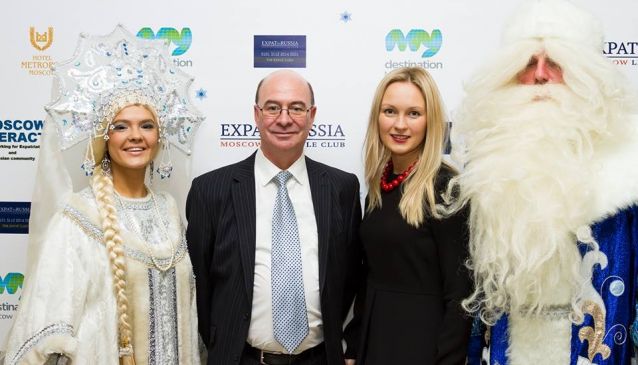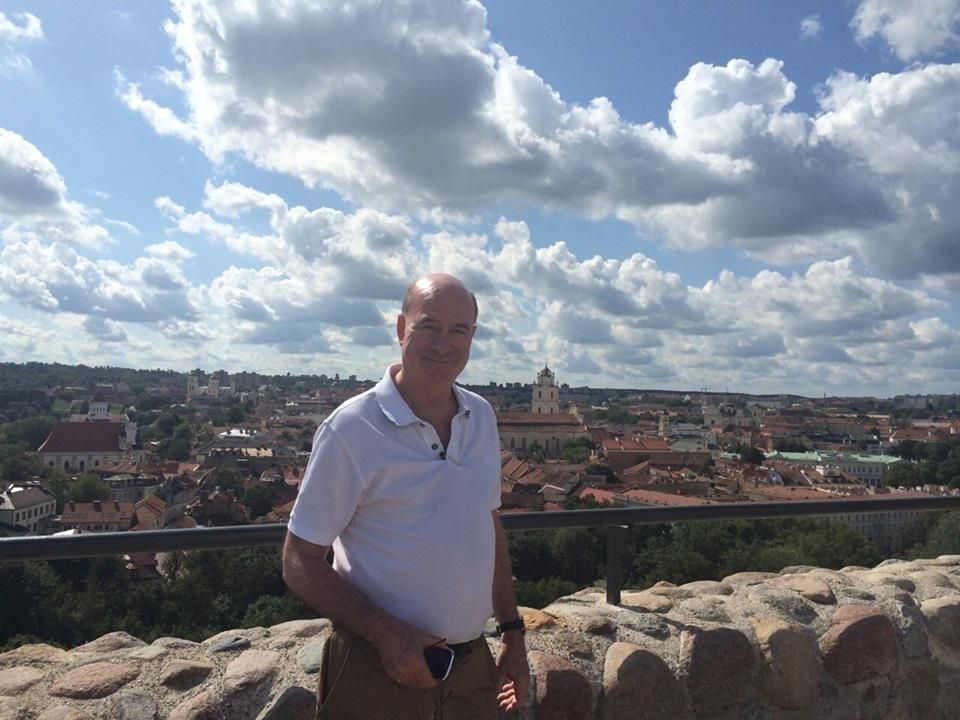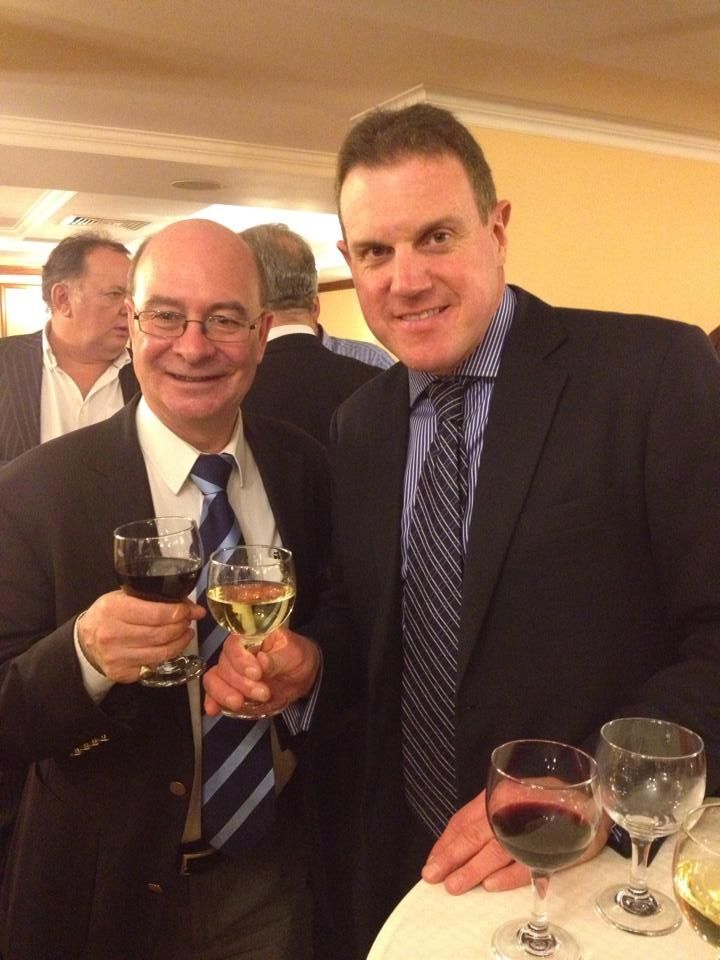Expat life in Moscow

S
Driving to Myasnitskaya Street, where the interview was appointed, I was worried I knew practically nothing about Simon Green. And the Friday evening’s traffic mixed with pouring rain promised me I would never get there in time. Luckily I managed to meet Simon and realized just in couple of minutes there was no place for worries and bad mood in company with Simon Green.
Simon: So, you know nothing about me, which is great. When people know a lot about me, they don’t want to talk to me (laughing).
Simon introduced to me Jane (his good friend’s wife) who visited Moscow several times, and said I could ask her questions as well to have a “fresh eye” on Moscow.
How does it happen that you moved to Moscow? And how long have you been living here?
Simon: I’ve been in Moscow for 13 years, I’m originally from England. I’ve done a lot of countries, about 74. I used to work in the Middle East for 5 years. Once I decided to take a 6-month break and go back to England, where I saw in a newspaper, the Daily Mail, a job advertisement saying: “troubleshooters wanted in Moscow”. I was naturally a bit suspicious, wondering if there could be mafia connections.
I found out it was work for an office equipment company – MB Company. They had big problems trying to get into international accounts as they had no real credibility and no sales trainings. They realized they had to have 3 or 4 expats in, who would be able to get access to a higher level within international companies. They had a lot of people interviewed, about 200 people, and they offered only 3 jobs. I thought I had no chances. Then I had a phone call about 3 days later saying: “When can you fly out to Moscow? You’re hired.”
People I met there were very friendly, did well with the company. In 3,5 years they decided they didn’t need expats anymore which was a big mistake on their part, because 6 months later the company was finished. So I thought to myself as everyone does in Moscow “oh, God, what am I going to do?”. Fortunately I had a good friend who was working in Real Estate and looking for someone to increase business opportunities, so I started working with him almost immediately. That went really well, until we got the 2008-2009 crisis. Then I got a job with an international Relocation company with their head office in Budapest. I was the general director in the Kiev office and it was very friendly down there... Later I came back to Moscow, and I didn’t have freedom and flexibility I had before. Then I decided to become a teacher which I’ve now been doing for 4 years.
Do you teach adults or kids?
Simon: I try to stay away from kids, not because I hate them, but because they’re a totally different market place, where I don’t have experience. I have two teenagers whom I teach. Mostly I teach directors and staff in international companies. I work with a school which is 30% of my work, and the other 70% is my own private classes.
Have you experienced culture shock? Were there any awkward things for you?
Simon: It starts probably on my first or second day. The first difference I came across was between doing business in England and here in Russia. When I went to meet people in while working with MB Company, I was about to shake hands to everyone, but the ladies were very reluctant to shake their hands, they were like “hold your hands off”. That was the first thing I didn’t know about – the women simply don’t shake hands. Men do – they were shaking hands every morning, but not with women. I found that very strange.
In England if you’re invited around to someone’s apartment or house for a drinks party or a dinner, if you know them quite well, you would shake hands with the husband right on the door and kiss the wife on the cheek, but in Russia you can’t do that, because it’s unlucky to shake hands on the threshold.
Recently an article by Luc Jones (a partner with Antal Russia recruitment agency) has been released. “Putting "normal" and "Russia" in the same sentence is always dangerous”, Luc said. Do you agree with him?
Simon: I agree.
Why? What is normal to you?
Simon: Not Russia. I mean the way you do the business. I’m not saying it’s better or worse, it’s just a little bit different. There’re differences in office behavior. In Russia they have a blame factor. If something goes wrong in a company or an office, which happens everywhere in the world, in Russia they will tend to look to an individual as to why it went wrong. The one difference is in England you will have a private meeting in an office and discuss it. In Russia this is done publicly. This I found very difficult when I arrived. Also in banks when you’re doing business. In England, banks are very stuffy and formal, you can’t do your private business in a public place. In Russia, they can announce quite loudly what’s going on and tell you to wait a few minutes if you want to take out some money.
Jane: I’ve noticed Russians do not tend to smile a lot. And if they see you smile to them, they think you are already a friend of theirs.
Simon: Absolutely. There’s a book called “Why Russians don’t smile” (by Luc Jones). Once you know Russians, they are more friendly, hospitable and giving than English people. In England they have a sort of barrier they put up, and until you know someone really well, then that’s fantastic. Russians won’t smile at first naturally because they see a sort of false thing in it - “why should I smile them, I don’t know them”. But once you know them, they’re really super. Once you’ve got a Russian friend, you got a friend for life.
I can’t help but ask you about the crisis we are all in today. Have you felt its impact on your own life or on those around you?
Simon: Yes, I have. No doubt about it at all. People have tightened their belts. They’re thinking twice before they go to Europe, because this is bloody expensive. If you are coming from the USA or Europe, now, it’s very cheap to come to Moscow as you’ve got more money to spend.
Jane: Yes. But the visas are so hard to get.
Simon: Visas are a complete nightmare. It seems Russia and UK have a competition to see who could make life more difficult. I used to go to Lithuania to get my visa, it was fantastic, I got it the same day, it was painless. Now I have to go to London because they want to take my fingertips, each time. But we do it to you, so it’s only reciprocity. 99% of Russians who come to England are nice people, and 99% of English people who come to Russia are also nice people. Why do they make life so difficult, I can’t understand? The crisis has affected a lot of companies: 20% of expats have gone back to England, Europe, or America.

In Vilnius
Do you often go to England?
Simon: I didn’t go to England for two years. But now I have to go there every 90 days, that’s the price of being here. But to me it still worth it: I’ve got a lot of friends here, also I’ve got a good job. To be honest, in England to get a job in my age is very difficult. I went there 4 years ago to buy a house, and I sent about 200 CVs – no one replied. Not even “no, you weren’t successful”, just nothing. If you are over 50 – “Poka-poka!” (“Bye-bye” in Russian).
What would you advise a person who plans to move to Moscow?
Simon: You have to be prepared to expect the unexpected, nothing will quite go according to plan. In England, we’re terribly regimented: lunch is always at 1.00 or 1.30. In Russia, it’s anything from 12 to 4 o’clock. I remember when I first arrived, it was 3.15 when someone told me: “I need to go for a lunch”. I was shocked!
Jane: There are some things here which we are not familiar with. For example, the blue boxes (self-service payment terminals) that are everywhere in Moscow. When the Internet went off, we didn’t know that we could pay for it through these boxes, one of which was just in the office we worked. Actually, we couldn’t find out how to use it because we didn’t know the language.
Simon: But I’ll tell you something where Russia scores heavily on compared to other European countries: your transport is brilliant. In the metro, every 45 seconds one train comes. In London, if you’re lucky, it’s every 4 minutes. Your “electrichka” (standard trains) are incredible, and it’s so cheap. One underground stop in London is 4 pounds. And here I pay 2000 rubles a month which includes metro, trams, buses! It’s a joke.
How would you describe Moscow? What possibilities can it provide?
Simon: Moscow is like a big village – everyone knows everyone, which can be good or bad depending on how you are behaving. The one thing that I’ve learned about Moscow is that if something doesn’t go quite right or you need to change the direction, Moscow is a great place to do it. You can reinvent yourself and become something else next day, this is so true. You can’t do that in England. It’s great to be an expat in Moscow, people are very helpful here. If you need some information, you can just throw it on your Facebook and someone will come up with an answer soon.
Interestingly, here in these two offices I work with and next door to a Londoner, an Irishman, and a Liverpudlian. Normally, in the UK I would never socialize with someone from Liverpool or Manchester, because I’m from Kent in South East. We are divided into “Northerners” and “Southerners”. But here you’re forced in the situation where you have to socialize. And, you know, they are really nice guys!
Simon Green’s formula of happiness?
Simon: It’s always been wine and music (laughing). I have a musical background, when I was a child I went to one of the top musical schools. And I always loved wine, in particular red wine, rather than spirits which I’ve mainly stayed clear of.
I love travelling, it opens your eyes. Last year I made 26 flights to various countries. The place I come from in Kent is like a village with a lot of agricultural people. I remember about 2-3 years ago I went to a local pub, and there were two “local yokels”, as we call them, sitting at the same table they were sitting at when I was a year before that, and they were still talking the same conversation…
Jane: and they are still there!
Simon: They looked at me like they really hated me and asked me, “What is it like in Russia? Are there still bears running down the street? Are the mafia on each corner?” I just answered, “It’s different”.
Do you plan to stay in Moscow?
Simon: I’ve been here for 13 years, and if I have a chance to stay for another 7, I’ll be delighted!

with Luc Junes